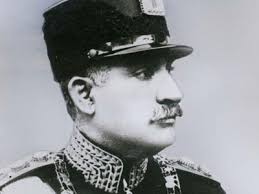Fast Forward two decades. In April 1998, I got a job with a global company. I traveled overseas every month for the next three years--33 trips to be exact. I flew to every continent except Africa and visited more than 20 countries on five continents. I had not been outside America since I flew home from Germany in 1979. By the time I left my job with Millennium Chemicals in 2000 my passport was full of visa stamps and I had paid to have 20 pages added to it.
As part of the job, I had a global T-Mobile phone and no limits on usage. All calls were free from anywhere to anywhere. So when I told my wife, my kids, my friends how breathtakingly beautiful the Hong Kong skyline is at night, I used my phone. If I had written my impressions, I would not even have to recopy them as I did in my tank turret in the 1970s. Email would allow me to copy and paste to anyone.
But I did not write about traveling. It was way too easy to call and talk. So I wrote for my job and talked about the new life I was leading, traveling the globe.
The next time I was writing without getting paid for it was this blog. When I first went back in the Army in August of 2007, I got a lot of questions about what I was doing. So I promised myself to write every day I was on duty with the Army. At first, this was one weekend per month. Then we started training to deploy to Iraq. So we were on duty for three weeks here, two weeks there, another week plus the weekends.
Then we were in Iraq. Just like Germany in 1977, calling home was difficult. And time was limited. So I wrote every day about what I was doing--within the limits of mission security. I could not write about upcoming flights, about attacks on the base, or about security. But I could write about food, toilets, the trailers we slept in, laundry, bitching, and dust.
So I wrote every day about them.
Then I came home and went back to work getting paid to write. The blog was back to one weekend a month.
In the past few months, I have been writing more. A former co-worker at my day job is the editor of a literary magazine. I submitted a story. WITF FM had a writing contest. I wrote another story. The stories were about death in Iraq. I don't know that I intended to write about death, but death is what the stories were about. If they don't get accepted for publication, I will publish them on the blog.
The next time I was writing without getting paid for it was this blog. When I first went back in the Army in August of 2007, I got a lot of questions about what I was doing. So I promised myself to write every day I was on duty with the Army. At first, this was one weekend per month. Then we started training to deploy to Iraq. So we were on duty for three weeks here, two weeks there, another week plus the weekends.
Then we were in Iraq. Just like Germany in 1977, calling home was difficult. And time was limited. So I wrote every day about what I was doing--within the limits of mission security. I could not write about upcoming flights, about attacks on the base, or about security. But I could write about food, toilets, the trailers we slept in, laundry, bitching, and dust.
So I wrote every day about them.
Then I came home and went back to work getting paid to write. The blog was back to one weekend a month.
In the past few months, I have been writing more. A former co-worker at my day job is the editor of a literary magazine. I submitted a story. WITF FM had a writing contest. I wrote another story. The stories were about death in Iraq. I don't know that I intended to write about death, but death is what the stories were about. If they don't get accepted for publication, I will publish them on the blog.









